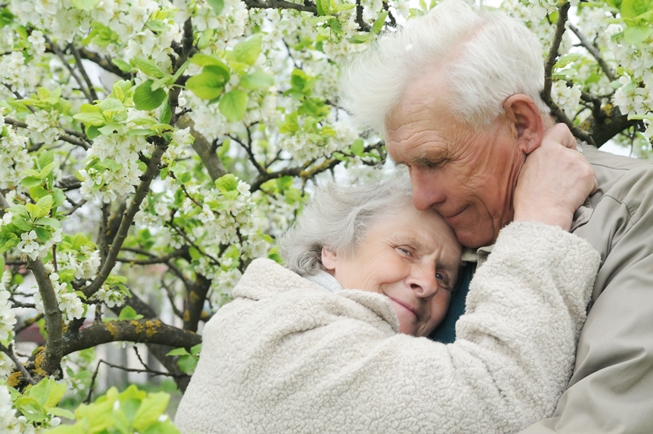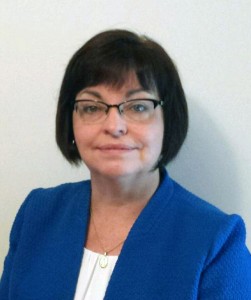Nothing to Fear: The Truth about Hospice

For families considering care for a loved one whose health is declining, hospice is a scary word.
Kathy Baker, Vice President of Hospice and Palliative Care for Home Nursing Agency, sheds light on hospice care and how it can benefit patients and families.
Does enrolling in hospice shorten someone’s life?
People think that when someone goes on hospice, they are going to die right away. The truth is that hospice does not affect life span by hastening death or prolonging life. Hospice care focuses on comfort and quality of life to help the patient make the most of every moment by managing his or her symptoms. It would be much scarier facing that time of life without the support and experience of the hospice team.
It seems hospice is for only the last few days of life. Is this true?
Hospice care is for anyone with a medical prognosis of six months or less, and the sooner a patient enrolls, the more benefit he or she can get from hospice. By enrolling earlier, the patient and family get to know the hospice team, and the team get to know them. Then as the patient is approaching those last few days of life, the patient and family are more comfortable, and the team can provide better care that meets their needs and expectations.
What does hospice do?
Hospice provides care and support for patients with limited days, and it helps to make those days comfortable with the best quality of life possible. Here are some examples of hospice care in action:
- Nurses observe and assess for uncomfortable symptoms and collaborate with the patient, family, and physician to develop a plan of care to treat those symptoms.
- Nurses educate the family about what to expect in the dying process.
- Social workers assist the patient with coping and emotional needs, as well as assist in bridging gaps among family members.
- Spiritual counselors walk the patient through closure and sense of purpose in life.
- Home health aides assist with personal care, like bathing and dressing.
- Volunteers offer companionship and support for the patient and caregivers.
Does hospice take care of the patient only?
Hospice care provides holistic care, which accounts for the whole family. The hospice team helps the family learn how to take care of the patient, teach them about the dying process, share information for the patient and family to make informed decisions on goals of care, and help family members communicate about the care of their loved one. Bereavement services can follow family members after their loved one passes through visits from volunteers, monthly mailings, grief support groups in the community, notecards, and phone calls, depending on the family’s wishes.
Do hospice patients have to change doctors?
No, a patient can keep his own primary care physician. The hospice team works with the patient’s physician and agency medical directors, who are board-certified in hospice and palliative care, to treat the patient with the best plan of care possible.
What about “hospice medications”?
Medications are ordered by physicians based on each patient’s unique symptoms, conditions, and needs. The goal of all medications and hospice care is to add to the patient’s quality of life by controlling symptoms so that whatever days of life the patient has left are as good as they can be.
How do I know if my loved one is eligible?
If you live in the Home Nursing Agency service area in west central PA, call 1.800.445.6262 for an assessment at no charge. If you are seeking hospice care in another area, click here to find a hospice provider in your area.
 Kathy Baker, MSN, RN serves as Vice President of Hospice and Palliative Care for Home Nursing Agency (HNA), based in Altoona, PA. Baker earned her Bachelor degree in nursing from Penn State University and Master’s degree in nursing from Loyola University. Since joining Home Nursing Agency over 25 years ago, Baker has been instrumental in advancing HNA’s presence throughout Central Pennsylvania to ensure individuals and their families have the support and options necessary to remain at home whether recovering from surgery or coping with a life-limiting illness. Respected for her experience and expertise, Baker presents at state conferences for the Pennsylvania Hospice Network, Pennsylvania Homecare Association, and at the National Hospice and Palliative Care Organization.
Kathy Baker, MSN, RN serves as Vice President of Hospice and Palliative Care for Home Nursing Agency (HNA), based in Altoona, PA. Baker earned her Bachelor degree in nursing from Penn State University and Master’s degree in nursing from Loyola University. Since joining Home Nursing Agency over 25 years ago, Baker has been instrumental in advancing HNA’s presence throughout Central Pennsylvania to ensure individuals and their families have the support and options necessary to remain at home whether recovering from surgery or coping with a life-limiting illness. Respected for her experience and expertise, Baker presents at state conferences for the Pennsylvania Hospice Network, Pennsylvania Homecare Association, and at the National Hospice and Palliative Care Organization.







